Welcome to the year 2025, where artificial intelligence within the healthcare sector is not merely a breakthrough but an essential component. Within the advancing realm of healthcare, a subtle transformation is unfolding, one that holds the promise of reshaping our future with AI. Envision a reality where your well-being can be overseen and controlled with accuracy all thanks to intelligence in healthcare.
This isn't some fantasy but a forthcoming actuality as we enter into 2025. The assimilation of AI into healthcare is revolutionizing care, diagnostics, and treatment, turning what was once deemed impossible into milestones. As indicated by an article from Forbes emphasizing AIs' influence on healthcare it's evident that we are teetering on the edge of a transition.
What implications does this hold for patients, healthcare practitioners, and the global health domain? As we delve into how AI impacts the healthcare sector let's investigate how this technology isn't just altering but substantially enhancing our approach towards health and well-being.
The Emergence of AI in Healthcare Industry
The saga of artificial intelligence (AI) in healthcare is a tale of innovation and advancement. AI technology first emerged in medical research in the last century, laying the groundwork for future developments. During this period, basic algorithms were used to help manage data and conduct diagnostic procedures, which marked the dawn of AI in healthcare.
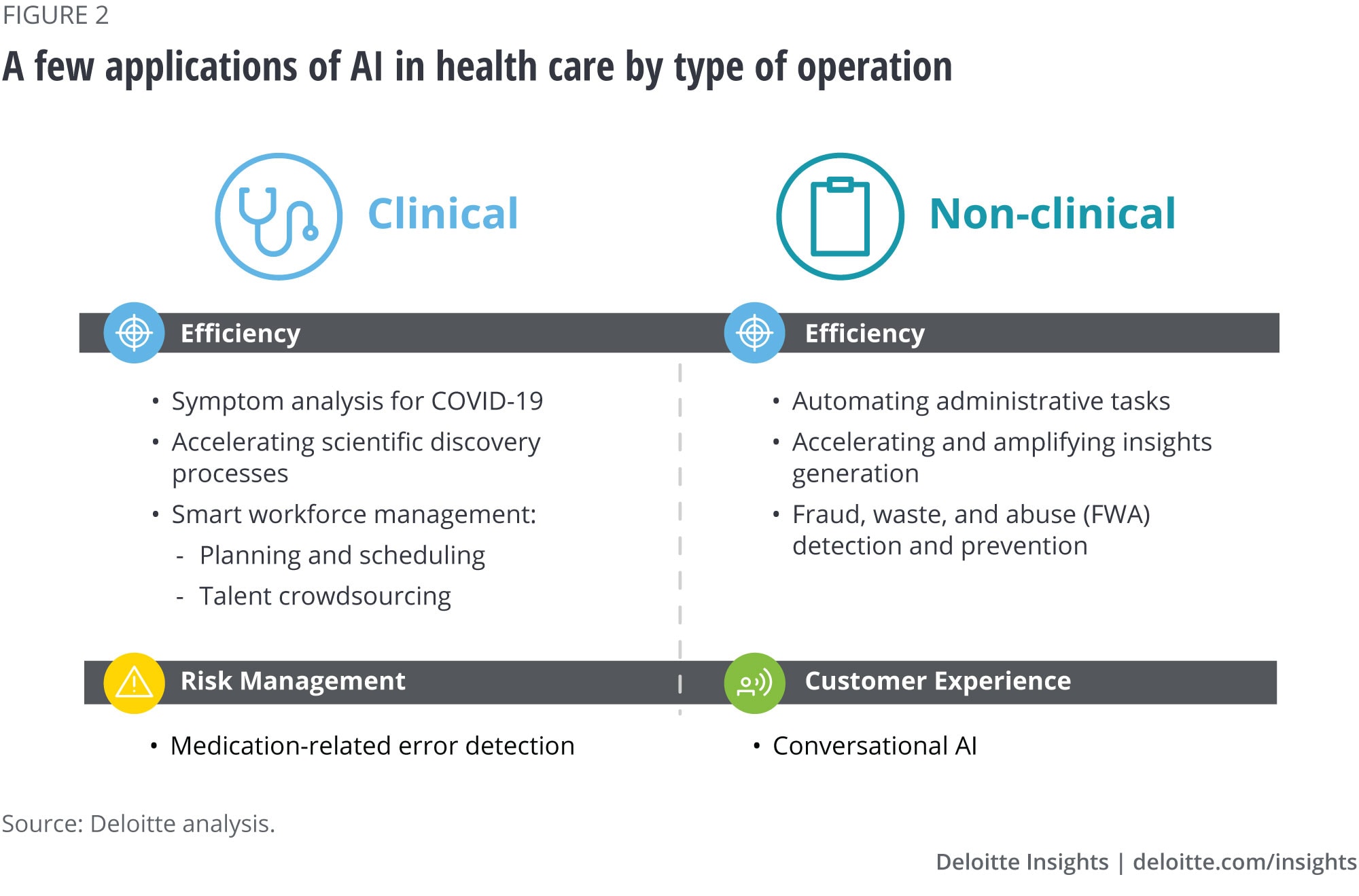
Before heading to the predictions of AI in healthcare, let’s take a look at the history of AI and the progress it has made so far.
Historical Background
-
The Days (1970s 1990s): exploration of AI in diagnostic tools and patient records.
-
The Growth Period (2000s): Expansion of AI capabilities including machine learning for identifying patterns in diagnostics.
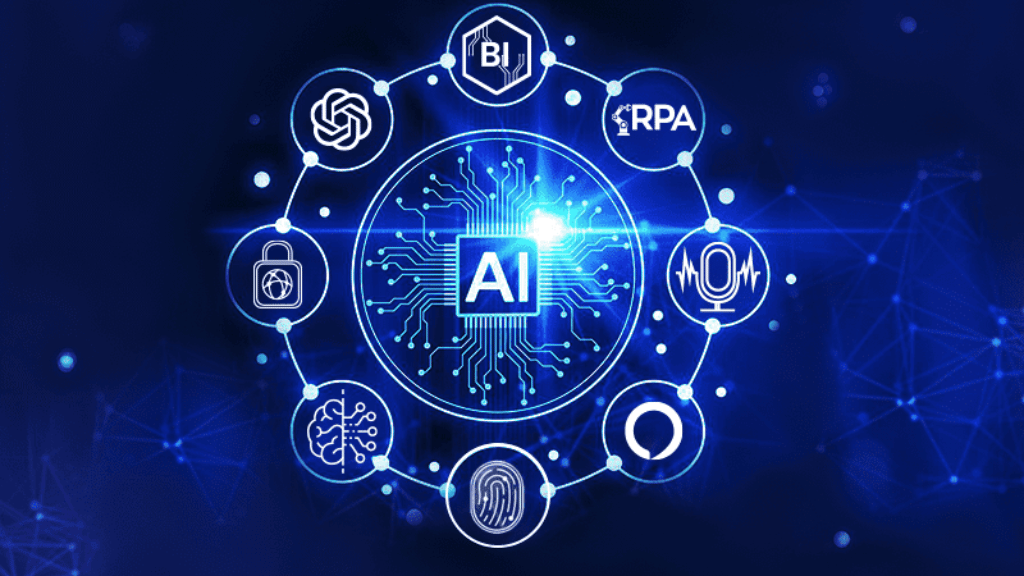
Swift Progress
-
Introduction of deep learning methods leading to a boost in precision.
-
Creation of AI-driven health assistants revolutionizing patient care and support.
-
Utilization of AI in analytics to improve medicine by spotting potential health risks preemptively.
These milestones highlight the evolving trend of AI in healthcare demonstrating how new AI technologies are not just enhancing but reshaping the landscape. Let’s have a look into the intermingled future of AI and healthcare.
Predictions for AI in Healthcare by 2025
In 2025 the realm of AI in healthcare is filled with promise offering changes that could redefine care and medical procedures.
Based on the insights gleaned from Google's AI forecasts here are some key predictions that shed light on the future of intelligence and its impact, on healthcare:
-
Embracing Generative AI: Tailored treatment plans for patients and the process of discovering drugs will see efficiency with the help of generative AI.
-
Enhanced Precision in Diagnosis with AI: Advancements in AI algorithms will significantly reduce errors leading to accurate early detection of diseases such as cancer.
-
Precision in Robotic Surgery: Progress in AI technology will enhance the accuracy of robotic-assisted surgeries resulting in shorter recovery times and better surgical outcomes.
-
Patient Care: Healthcare providers will be able to deliver personalized care plans by leveraging AI technology based on an individual's genetic makeup, lifestyle, and health information.
-
Support for Mental Health: AI-driven tools will become increasingly proficient at offering time-personalized interventions to support health needs.
These projections highlight a future where artificial intelligence does not come back. Instead, it elevates the healthcare sector paving the way for personalized, efficient, and precise care for everyone.
But technology has always taken a toll on the human brain, be it Allan Turing the father of modern-day AI, or a teenager who is scrolling through their phone. Hence it is necessary to have a conversation about mental health, and how AI can be useful to tackle it.
Read: 5 Benefits of Using AI for Product Design
The Role of AI in Mental Health Services in 2025
Artificial Intelligence (AI) is transforming health services by introducing approaches to diagnosis and treatment that were previously beyond imagination.

Insights from the HIMSS article on AI in health services reveal that AI is making strides in identifying and managing mental health conditions. In terms of diagnosis, AI tools can now accurately detect signs of issues like anxiety and depression by analyzing speech patterns, behavior, and social media usage. This allows healthcare providers to address concerns before they worsen.
When it comes to treatment, AI-powered chatbots offer round-the-clock support with coping strategies and immediate assistance. Additionally, AI utilizes data analytics to customize therapy plans based on needs ultimately improving treatment outcomes. By using analytics, AI can also forecast mental health crises enabling proactive intervention.
While AI is revolutionizing mental health services, the rise of generative AI promises to take personalized healthcare to new heights.
Read: Advantages and Disadvantages of Artificial Intelligence
Generative AI and It's Applications in 2025
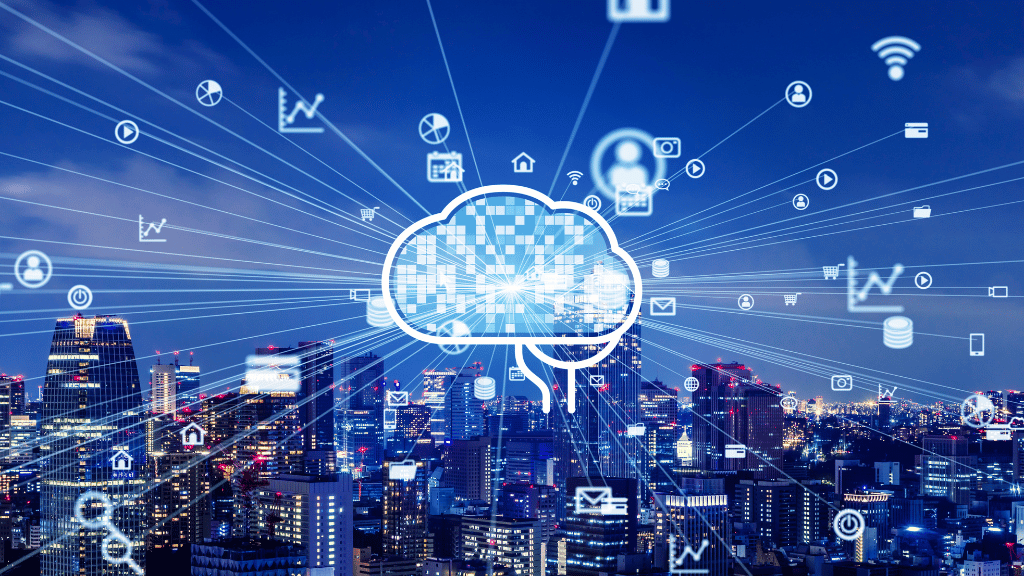
Generative AI is the flagbearer in intelligence that operates like a skilled artist creating new works after studying various styles and techniques. This innovative technology, as discussed by sources such as BBVA OpenMind goes beyond imitating creativity; it aims to enhance it by unlocking possibilities for groundbreaking innovations that were once only found in the realm of imagination.
But it can malfunction as seen in recent images created by Google Gemini, so it becomes necessary to keep monitoring this tech.
Now put AI in the field of healthcare like a master chef who skillfully creates recipes tailored to each diner's specific dietary requirements. Similarly generative AI can craft individualized treatment plans based on patients' unique health profiles ensuring that each individual receives care customized to their DNA, well of course after rigorous training and contact surveillance of doctors.
This remarkable ability of AI particularly when supported by platforms like Google AI is paving the way for a healthcare transformation where personalized care becomes the standard rather than the exception.
Read: Artificial Intelligence is the Future of Web Development
As generative AI continues to push the boundaries of personalized healthcare, AI tools are simultaneously revolutionizing diagnostics and patient treatment. Let's explore how these cutting-edge technologies are transforming various aspects of healthcare delivery.
Revolutionizing Healthcare with AI Tools in 2025
Artificial Intelligence (AI) tools are reshaping the healthcare landscape by making advancements in diagnostics and patient treatment. These tools are not only revolutionizing our approach to challenges but also establishing new benchmarks for precision and efficiency.
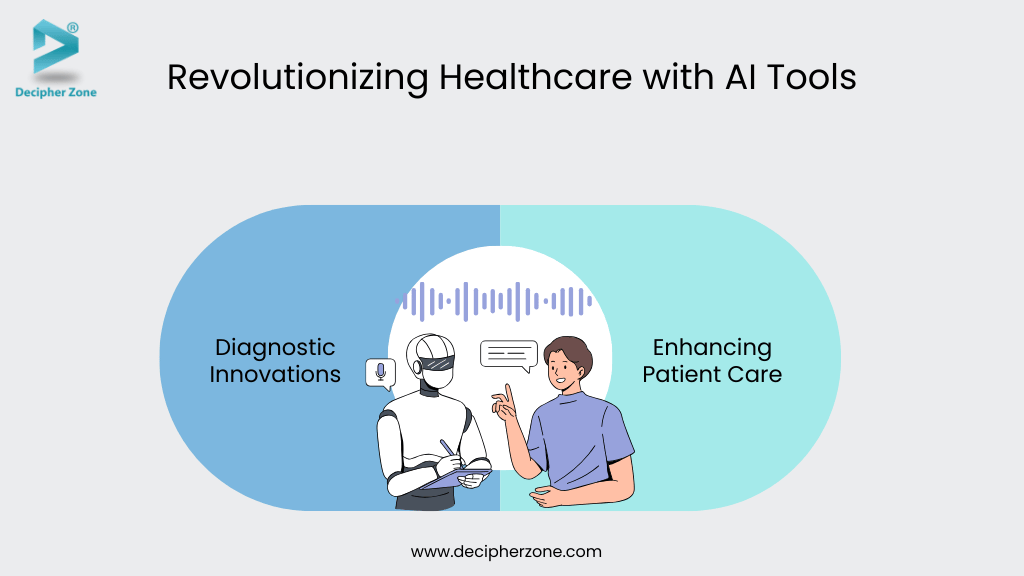
Diagnostic Innovations
-
Image Analysis Tools: Utilizing AI algorithms to interpret X-rays and MRIs swiftly and accurately than before in identifying abnormalities.
-
Wearable Devices: Monitoring signs and detecting indicators of conditions such as heart diseases and diabetes.
-
Genetic Sequencing Software: Examining data to forecast susceptibility to illnesses.
Enhancing Patient Care
Virtual Health Assistants; Providing support and guidance for patients on their health journey. Around-the-clock assistance and health monitoring services are provided to remind patients about medication intake and doctor appointments.
Customized treatment plans are recommended based on patient data analysis by AI offering tailored strategies. Mental health apps facilitate discussions and assessments to help individuals manage their well-being.
Delving deeper, let's explore how AI is revolutionizing medical diagnosis and treatment, ushering in a new era of precision and personalized care.
Read: How Is Artificial Intelligence Revolutionizing Marketing?
Role of AI in Medical Diagnosis and Treatment in 2025
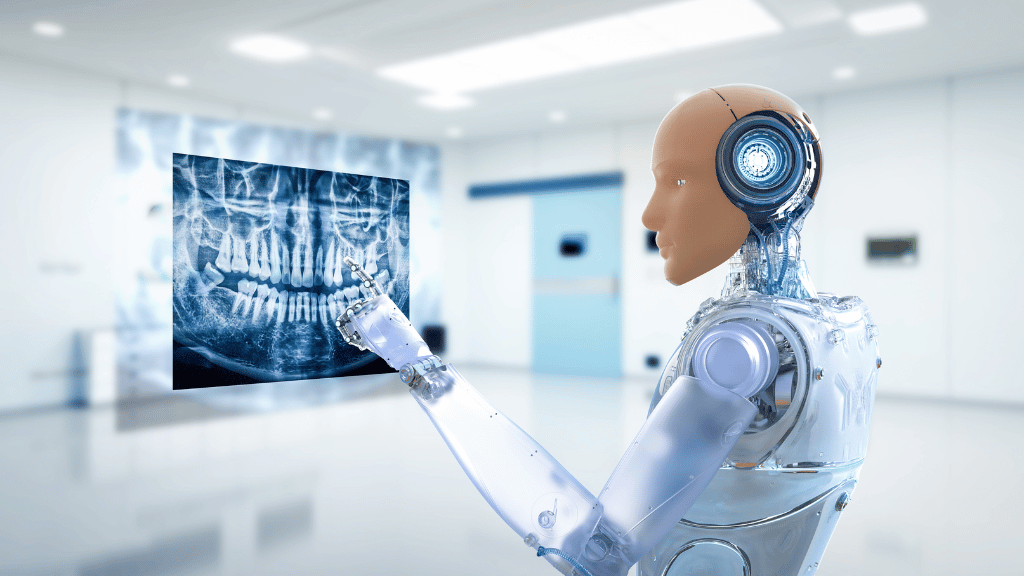
The use of AI tools in the field is not a vision of the future but a current reality that is shaping a more informed, effective and personalized healthcare system. Artificial Intelligence (AI) is transforming diagnosis and treatment by providing precision and efficiency. Healthcare professionals can now address diseases with accuracy by leveraging the capabilities of medical AI.
By analyzing datasets, AI enables the detection and diagnosis of conditions like cancer, where algorithms* can pinpoint cancer cells in imaging scans more accurately, than traditional methods.
In the case of heart disease, machine learning* models assess risk factors based on history, lifestyle choices and genetic data. Moreover, in stroke diagnosis, AI tools swiftly examine brain scans to identify strokes reducing time and enhancing patient outcomes.
Read: Role of Quantum Computing in Artificial Intelligence
Definitions
Algorithm: A set of guidelines or instructions provided to an AI system to aid its learning from data.
Machine Learning: A branch of AI that enables systems to learn and enhance themselves through experience without programming.
The integration of AI in practices is leading to a proactive, personalized and efficient approach to patient care ushering in a new era in healthcare. But now let’s talk ethics that are required for this integration.
Ethical Considerations and Challenges in Adopting AI in 2025
In the realm of healthcare advancements driven by AI, it's crucial to confront the issues and hurdles that accompany its integration. Addressing concerns surrounding privacy, bias and accountability is essential for the implementation of AI technologies.
Read: The Impact of Artificial Intelligence on Business
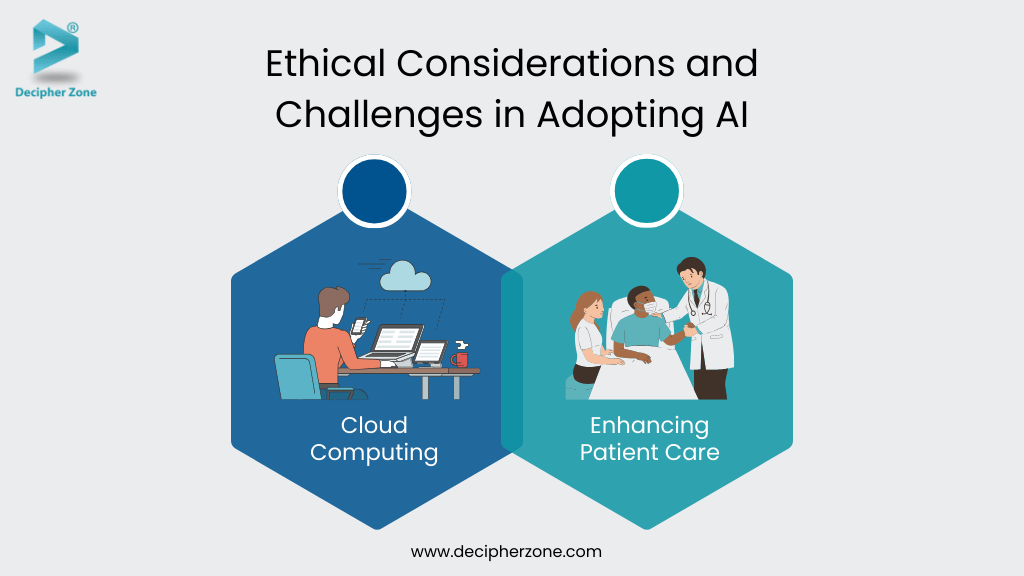
Ethical Considerations
-
Privacy: How can we protect data effectively?
-
Bias: What measures can be taken to prevent or correct biases introduced by AI in healthcare?
-
Accountability: Who should take responsibility when errors arise from AI usage?
Risk Mitigation Strategies
-
Implement robust data protection measures.
-
Evaluate AI systems for biases and address them promptly.
-
Establish protocols for holding AI accountable in healthcare settings.
Questions & Responses
Q: Can AI jeopardize privacy?
A: By implementing data protection measures we can ensure that AI doesn’t jeopardize the healthcare system’s privacy.
Q: Is artificial intelligence prone to bias?
A: AI may exhibit biases based on its learning data. Ongoing monitoring and adjustments can help mitigate bias issues.
Q: Who is accountable for decisions made by AI?
A: Both developers and healthcare providers using AI tools share responsibility for the outcomes of AI decisions.
Read: Emerging Trends in Mobile App Development
Guidelines for Ethical Deployment of AI
-
Ensure that AI systems comply with data protection guidelines.
-
Regularly assess the decisions made by AI systems to identify and address any biases.
It's important to be open and honest, with patients, about how AI technologies are being used. When using AI in healthcare it's crucial to consider how it's being implemented to enhance care while upholding ethical standards.
Rigorously ethical AI deployment? Check! Now watch it transform clinicians.
AI's Impact on Healthcare Staff

The incorporation of AI into the healthcare workforce is transforming job roles and necessitating training methods and adaptability. As per a McKinsey report on revolutionizing healthcare through AI, the landscape of professions is evolving, posing challenges and opportunities for healthcare professionals.
Changes in Job Responsibilities
|
Pre-AI Integration |
Post-AI Integration |
|
|
In the transition to a healthcare environment enriched by AI, the workforce must be adaptable, tech-savvy, and ethically conscious. Embracing these advancements allows healthcare professionals to leverage AI as an asset that complements their roles and elevates the standard of care, and for that AI Literacy Programs should be introduced.
These programs will aim to train healthcare professionals to understand and collaborate with AI technologies effectively. Ethical Use Workshops focus on educating individuals about the considerations of using AI in care. Technical Skill Development courses are designed to enhance proficiency in utilizing AI tools.
Even as AI reshapes clinical roles, its true power lies in democratizing healthcare access worldwide. Witness how this revolutionary force is dismantling barriers to equitable care delivery globally.
AI's Influence on Healthcare Accessibility and Equity
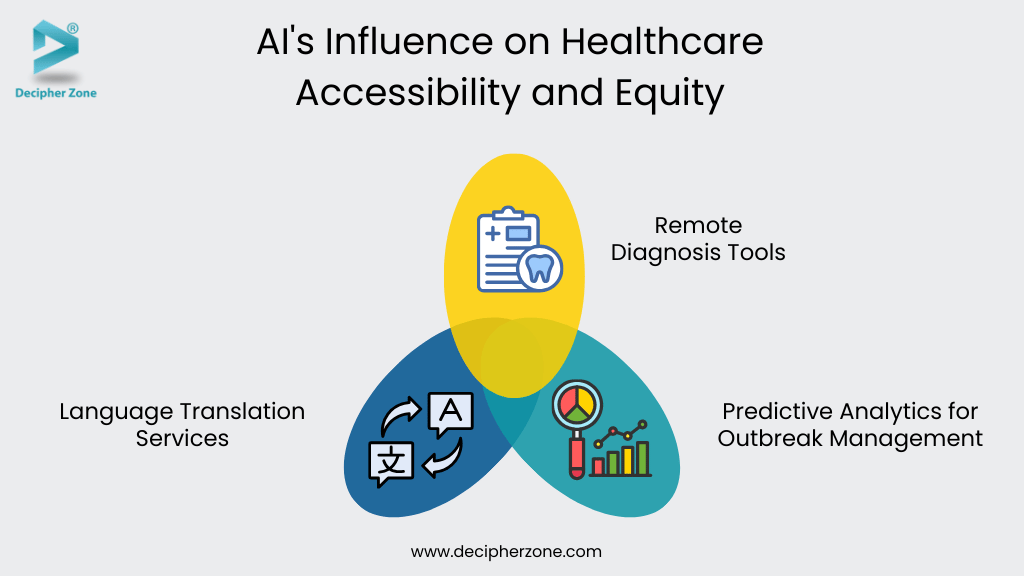
The impact of Artificial Intelligence (AI) on healthcare accessibility and equity is substantial. Through initiatives, AI is instrumental in closing healthcare gaps while promoting accessibility and fairness worldwide.
The World Economic Forum highlights AI projects that are removing obstacles to healthcare services ensuring that high-quality care is accessible across all regions.
Several AI initiatives are driving improvements in healthcare equity:
-
Remote Diagnosis Tools: Platforms powered by AI for patients in areas that don't have access to top-notch medical services, to receive accurate diagnoses without the need for extensive travel.
-
Language Translation Services: By utilizing AI-driven translation tools language barriers related to health information can be taken care of. One such example is simplifying medical jargon for the patients.
-
Predictive Analytics for Outbreak Management: The use of AI for predicting and managing disease outbreaks can be life-saving in underserved regions.
These efforts highlight the impact of intelligence in the healthcare sector by utilizing AI platforms and tools to promote equal healthcare opportunities and accessibility, for everyone irrespective of their location or economic background.
From diagnosis to health equity, AI has redefined what's possible. But can this revolution truly replace human expertise? The conclusion awaits…
Read: How AI is Changing The Future of eCommerce
Conclusion
In this blog post, we've explored how Artificial Intelligence (AI) is impacting the healthcare sector and will continue to do so. It's transforming diagnostics, surgery, and patient care and reshaping the healthcare workforce to be more intelligent and effective, in addressing gaps in accessibility and equity. But is it reliable and can replace an actual doctor or a nurse? The answer is no.
AI which used to be a concept, is not anymore! It's a force in the present. The advancements in Generative AI (or AI in general) technology and the ethical dilemmas it raises emphasize the importance of an approach to integrating AI into healthcare, and for that, it is required to educate people about it.

We urge you to dabble your feet into the realm of AI in healthcare. Feel free to share your thoughts, experiences, or challenges in the comments section. Help spread awareness about the role of AI in health by sharing this blog post and continuing your exploration of the opportunities and challenges presented by AI.
Want to build an AI-powered healthcare software solution for your business? Contact our experts now! Together we can work towards a future where AI enhances patient outcomes, promotes equity, and boosts efficiency within healthcare.
If you're excited to harness the power of AI for your business, our AI consultants are ready to help. Book a free consultation call today!

